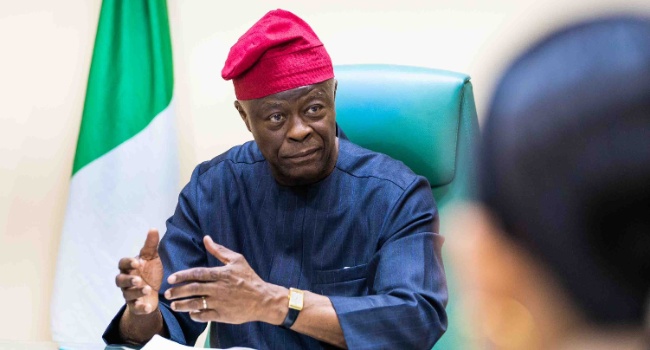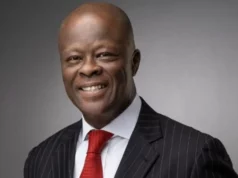The Minister of Finance and Coordinating Minister of the Economy, Mr Wale Edun, revealed that the country spends $600m monthly on fuel imports.
He vehemently denied reports that the federal government secretly approached the Central Bank of Nigeria (CBN) for Ways and Means advances, insisting there was no such thing.
During an interview on AIT, Edun attributed the humongous expenditure on petrol to the fact that neighbouring countries, extending as far as Central Africa, are benefiting from Nigeria’s fuel imports.
Edun explained that the issue was one of the main reasons President Bola Tinubu decided to yank off the fuel subsidy to cut back on foreign exchange expenses.
He alluded to the fact that the nation lacks accurate data on its internal fuel consumption, which complicates efforts to manage the situation effectively.
He further stressed that addressing the issue was crucial for the country’s economic stability and growth.
He emphasised that the government’s top priority was the welfare of its citizens, particularly the vulnerable.
Edun added that ensuring the availability and affordability of food was a key focus area for the incumbent administration.
The Minister also clarified that the N570 billion fund allocated to state governments was initiated in December of the previous year.
He said: “The fuel subsidy was removed on May 29, 2023, by Mr. President.
“At that time, the poorest 40 percent of the population was receiving only four percent of the subsidy value. Essentially, they were not benefiting at all. It was benefiting only a few.”
He continued: “Another important point is that nobody knows the exact petroleum consumption in Nigeria. We know we spend $600 million to import fuel every month, but the issue is that all neighboring countries are benefiting. We are not just buying for Nigeria; we are buying for countries to the east, almost as far as Central Africa, as well as for countries to the north and west. We must ask ourselves, as Nigerians, how long we want to continue this.”
Edun also discussed the government’s efforts to mitigate inflation and stabilise the economy by ensuring the availability of homegrown food. He reassured that this approach would not harm local farmers, as imports would only be permitted once local supplies are fully depleted.
“In the short term, apart from what is being distributed from reserves, there is a window opened for importation,” he explained. “The President’s commitment is to drive down prices and make food available immediately. One of the conditions for this importation is that all locally available food in the markets or with millers must be taken up first. We will have auditors to verify this”, Edun explained.
Edun further revealed that the government plans to offer tax breaks to companies hiring more staff and suspend import duties on certain goods to combat inflation. This, he said, are measures that will be part of the forthcoming inflation reduction Act.
He disclosed that the government plans to offer tax breaks to companies hiring more staff and suspend import duties on certain goods to combat inflation. These measures, he said are part of the forthcoming inflation reduction Act to be signed by President Bola Tinubu in the coming weeks.










